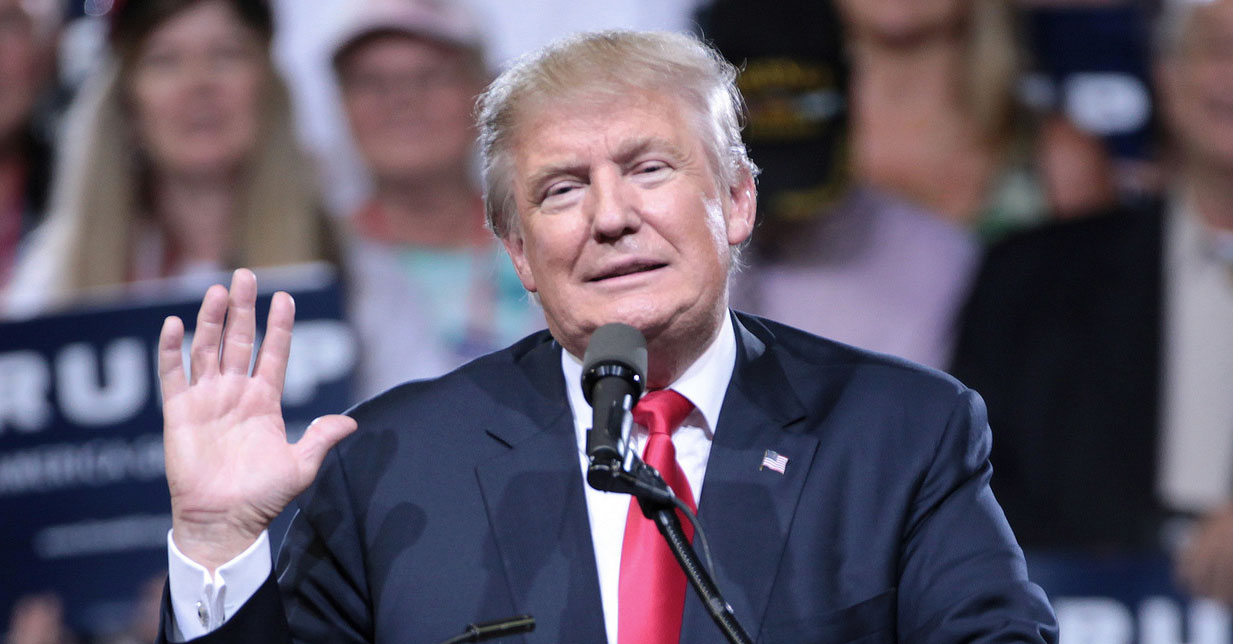
Hundreds of economists, including eight Nobel laureates, signed a letter denouncing Republican presidential nominee Donald Trump’s repeated lies about job growth, trade, immigration, the federal debt, and the state of the American economy. The misinformation the economists identified is not Trump’s alone, but the product of a right-wing media echo chamber that specializes in spreading myths about the economy to serve its partisan agenda.
The Wall Street Journal published a letter from 370 economists on November 1 denouncing Trump’s economic policies and the distortions upon which they are built. The Journal reported that the letter was “less partisan or ideological” than similar letters aimed at political candidates and instead focused on “Trump’s history of promoting debunked falsehoods” and “conspiracy theories” instead of “engag[ing] with reality.” The economists took specific issue with Trump’s false claims that the unemployment rate is higher than the federal government reports, that increasing tariffs would lead to more U.S. manufacturing jobs, that immigration has hurt the U.S. economy, and that his proposed tax cuts will decrease the deficit. From the letter:
- He degrades trust in vital public institutions that collect and disseminate information about the economy, such as the Bureau of Labor Statistics, by spreading disinformation about the integrity of their work.
- He has misled voters in states like Ohio and Michigan by asserting that the renegotiation of NAFTA or the imposition of tariffs on China would substantially increase employment in manufacturing. In fact, manufacturing’s share of employment has been declining since the 1970s and is mostly related to automation, not trade.
- He claims to champion former manufacturing workers, but has no plan to assist their transition to well-compensated service sector positions. Instead, he has diverted the policy discussion to options that ignore both the reality of technological progress and the benefits of international trade
- He has misled the public by asserting that U.S. manufacturing has declined. The location and product composition of manufacturing has changed, but the level of output has more than doubled in the U.S. since the 1980s.
[...]
- He has lowered the seriousness of the national dialogue by suggesting that the elimination of the Environmental Protection Agency or the Department of Education would significantly reduce the fiscal deficit. A credible solution will require an increase in tax revenue and/or a reduction in spending on Social Security, Medicare, Medicaid, or Defense
- He claims he will eliminate the fiscal deficit, but has proposed a plan that would decrease tax revenue by $2.6 to $5.9 trillion over the next decade according to the non-partisan Tax Foundation.
[...]
- He uses immigration as a red herring to mislead voters about issues of economic importance, such as the stagnation of wages for households with low levels of education. Several forces are responsible for this, but immigration appears to play only a modest role. Focusing the dialogue on this channel, rather than more substantive channels, such as automation, diverts the public debate to unproductive policy options.
The falsehoods the economists denounce have been well-documented -- Media Matters identified 19 economic myths Trump has spread during this election cycle. The economists took issue with Trump falsely claiming the unemployment rate could be as high as 42 percent, a wildly exaggerated figure that has been repeatedly debunked after being popularized by right-wing radio host Rush Limbaugh and Fox News.
The economists denounced Trump’s attacks on immigrants and immigration reform, which have been enabled by Fox hosts Sean Hannity, Bill O’Reilly, and others at the network. According to Vice, Trump learned his anti-immigrant rhetoric from right-wing commentator Ann Coulter, who has attacked immigrants for years. Yet, as FiveThirtyEight chief economics writer Ben Casselman pointed out, immigration has “important economic advantages” for the United States, including stoking economic growth by imbuing the population with younger and more economically productive workers and consumers.
The economists pointed out that Trump’s proposed tax cuts will explode the deficit by $2.6 to $3.9 trillion. Media Matters has pointed out that Trump’s tax policy agenda has been discredited as “pie in the sky” and “magical thinking” by experts on both sides of the aisle, but it has nevertheless found repeated defenders in Fox News, which falsely claims huge tax cuts for the wealthiest of Americans is “how we grow the economy.” The Wall Street Journal’s editorial board has also defended Trump’s tax plan, lauding it for reducing taxes on the wealthy.
Even conservative Washington Post columnist Jennifer Rubin -- no stranger to pushing absurd and unrealistic right-wing media narratives when it suits her -- slammed Trump’s “know-nothingism” on the economy. Conservative Chicago Tribune columnist Steve Chapman had also previously hit the GOP nominee for perpetuating “a scam, skillfully pitched to fool the gullible” with his fact-free economic populism.
But criticism from a few conservative writers does not change the fact that conservative media outlets enabled Trump’s lies, paved the way for his presidential campaign, and built the political infrastructure he needed to conquer the Republican Party. As Media Matters and others have repeatedly pointed out, Trump is a creation of the right-wing media. His willingness to echo any number of right-wing media economic myths is further proof of that.